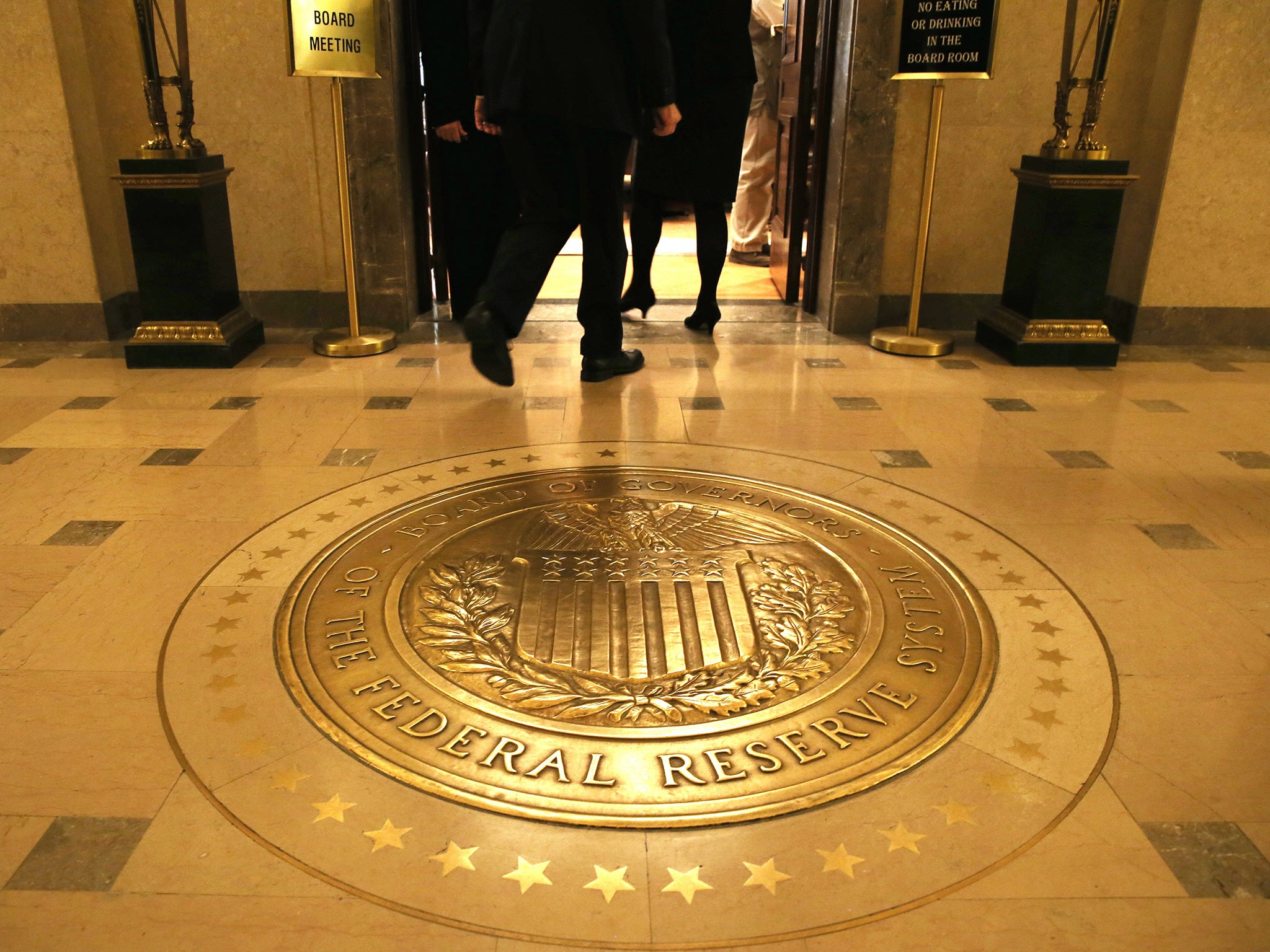Interest rates will have to go up across the world to deflate the bubble
The long period of ultra-loose monetary policy is coming to an end. You could say this is because it has done its job, in that it has led to a solid global recovery. But you can also point to the costs of the policy, an asset boom that has increased inequality and threatens now to lead to an asset bust


It is central bank week, with the Federal Reserve, the European Central Bank and the Bank of England all meeting to decide on interest rates. Writing ahead of the statements there is always a danger of misjudging their response, but it is very clear what the markets expect. The Fed will increase interest rates, the ECB will signal a gradual tightening of policy next year, and the BoE may hint that we should be prepared for another rise in its rates early in 2018.
It will all be in central-bank-speak, that convoluted language they use to prepare markets for what they might do, while leaving open the chance that they might do something quite different. So-called “forward guidance” has been a pretty poor guide to their subsequent actions. But now the supertankers are turning. The long period of ultra-loose monetary policy is coming to an end. You could say this is because it has done its job, in that it has led to a solid global recovery. But you can also point to the costs of the policy, an asset boom that has increased inequality and threatens now to lead to an asset bust. If you don’t believe we are in bubble territory, look at bitcoin or the $450m paid for a Leonardo da Vinci painting in New York last month.
How do you deflate a bubble in the least damaging way? That is the challenge they face. The response in the US has been to tighten slowly and steadily, first by ending quantitative easing (aka printing money), then gradually increasing short-term rates, and allowing longer-term rates to climb. The response in the UK has been similar but confused by Brexit, which led to that odd cut in rates in rates in August last year. The response in Europe has been to flood the Eurozone with money, which has at last to a cyclical recovery, but at the cost of the weaker countries owing huge debts to Germany and still leaving them poorer than they were when the euro was launched in 1999. Blame the rigidities imposed by the euro, not the ECB itself, but it is custodian of the currency.
All three central banks now face problems. In the US they are mostly associated with the new Administration. If you have tax cuts, part of a looser fiscal policy, you should be prepared to have a tighter monetary policy to offset it. The US is stumbling towards the most substantial tax reforms for more than 30 years, but while some sort of reform is welcome, the timing is worrying. You really should not be boosting the economy when it is close to full capacity. The electoral cycle and the economic cycle are misaligned.
If US growth really picks up next year, expect sharp increases in interest rates. What would that mean for the rest of us?
Here in the UK everything seems to be conditioned by Brexit, for it is almost impossible to discuss the economy without attaching a “despite Brexit” or “because of Brexit” label. Actually I think it is having a lot less impact on the economy than people think. We have had a long expansion and must be fairly close to full employment. When that happens interest rates go up. The massive debts that many people carry may mean that rates don’t need to go up as in past cycles because a smaller rise will have a bigger impact on demand. If that sounds comforting, the debt levels are not. It would be naïve to think that we are immune from a sharp rise in US rates.
In Europe money has been so cheap for so long that it is hard to work out quite what would happen were rates to go back to historic levels. What we can see is that a cyclical upturn is concealing structural weaknesses. Even Italy and Greece are growing a bit. While that upturn continues the Eurozone will seem a success. There is no way round the one-size-fits-all interest rate problem, but the problem is concealed while rates are so low. So expect the ECB to hold them down as long as it possibly can.
Anyway, by the end of this week we will have a better feel for interest rates next year. They are funny things, for they are just numbers, but they have a profound effect on all of us – anyone who has a mortgage or savings or both. My guess, however, is that they will rise faster than most people expect.


Join our commenting forum
Join thought-provoking conversations, follow other Independent readers and see their replies